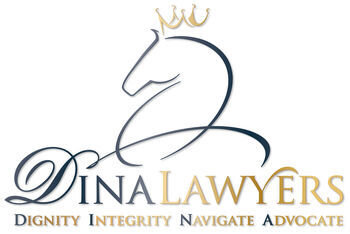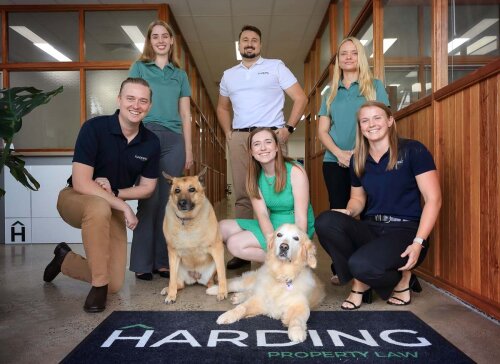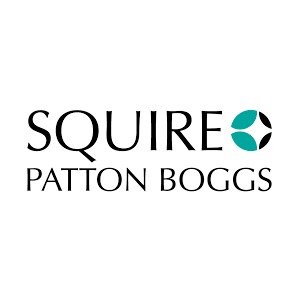Best Conveyancing Lawyers in Sydney
Share your needs with us, get contacted by law firms.
Free. Takes 2 min.
Free Guide to Hiring a Real Estate Lawyer
List of the best lawyers in Sydney, Australia
About Conveyancing Law in Sydney, Australia
Conveyancing is the legal process of transferring the ownership of property from one person or entity to another. In Sydney, Australia, conveyancing applies to all types of real estate transactions, including the buying and selling of houses, apartments, land, and commercial properties. The process involves preparing, verifying, and lodging all necessary legal documents to ensure the transfer is valid and binding. Conveyancing is integral to every property transaction in Sydney, helping to protect both buyers and sellers from legal pitfalls.
Why You May Need a Lawyer
A lawyer with expertise in conveyancing can offer critical guidance and protection throughout the real estate transaction process. Some common situations where legal help is essential include:
- Drafting or reviewing contracts for the sale or purchase of property
- Ensuring compliance with local property laws, regulations, and zoning requirements
- Identifying and resolving property title issues, such as undisclosed easements, covenants, or debts attached to the property
- Managing the exchange of funds and documentation between the involved parties
- Protecting your rights during disputes, contract breaches, or settlement cancellations
- Providing advice on stamp duty and other government fees
- Safeguarding your legal and financial interests in complex or high-value transactions
Legal representation can help avoid costly mistakes and ensure a smoother transaction for everyone involved.
Local Laws Overview
The laws governing conveyancing in Sydney are primarily set by the state of New South Wales (NSW). These laws cover the procedures and standards that buyers, sellers, and their representatives (solicitors or licensed conveyancers) must follow. Some key aspects relevant in Sydney include:
- Contract of Sale: All property transactions require a written contract. Sellers must prepare this contract before listing a property for sale.
- Cooling-Off Period: Buyers usually have a 5-business day cooling-off period after signing a contract for residential property, during which they can withdraw from the purchase with a penalty (unless waived).
- Section 66W Certificate: This certificate can waive the buyer's right to a cooling-off period, making the contract immediately binding for both parties.
- Title Searches: A title search is conducted to confirm the seller owns the property and to check for encumbrances or restrictions.
- Stamp Duty: Buyers must pay stamp duty based on the property value.
- Electronic Conveyancing: Many settlements and lodgements are now done electronically through the PEXA system.
- Completion or Settlement: This is the final stage where ownership is officially transferred, and the buyer receives the keys.
It is vital that all parties adhere to these and other relevant laws and procedures to ensure a valid and enforceable transaction.
Frequently Asked Questions
What is conveyancing and do I need a lawyer to do it?
Conveyancing is the legal process of transferring property ownership. While you are not legally required to use a lawyer, it is highly recommended due to the complexity and legal risks involved.
How long does the conveyancing process take in Sydney?
Typically, conveyancing takes between 4 to 8 weeks from contract signing to settlement, but times can vary depending on circumstances and parties involved.
What is a cooling-off period and how does it work?
The cooling-off period gives buyers of residential property 5 business days to change their mind after signing the contract. If they withdraw, a small penalty applies.
What costs are involved in conveyancing?
Costs include professional fees for the lawyer or conveyancer, title search fees, government charges such as stamp duty, registration fees, and additional disbursements for certificates or inspections.
Can the contract of sale be subject to conditions?
Yes, the contract can include conditions such as obtaining finance approval, satisfactory building or pest inspections, or sale of your current property.
What risks are involved in not using a lawyer?
Risks include missing crucial contract terms, not identifying encumbrances or restrictions, financial loss, legal disputes, or settlement failure.
What is settlement and what happens on settlement day?
Settlement is when the purchase price is paid in full, legal documents are exchanged, and ownership officially transfers to the buyer. The buyer receives the keys and can take possession.
What is electronic conveyancing?
Electronic conveyancing is the lodgement and settlement of property transactions online using platforms like PEXA, making the process more efficient and secure.
How do I check if a licensed conveyancer or solicitor is registered?
You can check registrations through the NSW Law Society for solicitors and NSW Fair Trading for conveyancers.
What should I look out for in the contract of sale?
Pay attention to special conditions, inclusions and exclusions, settlement dates, cooling-off rights, and any restrictions or obligations outlined in the contract.
Additional Resources
If you need more information or assistance regarding conveyancing in Sydney, consider these helpful resources:
- NSW Land Registry Services: Provides property title searches and lodgement services.
- NSW Office of Fair Trading: Offers guidance on conveyancing, consumer rights, and lists licensed conveyancers.
- Law Society of NSW: Offers a Find a Lawyer service and publishes guides on property law.
- Revenue NSW: Gives information on stamp duty and other property taxes.
- Australian Securities and Investments Commission (ASIC): Provides guidance on financial aspects of buying property.
Next Steps
If you are considering buying or selling property in Sydney, start by consulting a qualified lawyer or licensed conveyancer experienced in property law. Prepare the necessary documents and gather as much information about the property as possible. Ask prospective legal representatives about their experience, fees, and the process they follow. Once you have engaged a professional, they will guide you through each stage of the conveyancing process and ensure your interests are protected. Prompt communication and clear documentation are key to a successful and stress-free transaction.
Lawzana helps you find the best lawyers and law firms in Sydney through a curated and pre-screened list of qualified legal professionals. Our platform offers rankings and detailed profiles of attorneys and law firms, allowing you to compare based on practice areas, including Conveyancing, experience, and client feedback.
Each profile includes a description of the firm's areas of practice, client reviews, team members and partners, year of establishment, spoken languages, office locations, contact information, social media presence, and any published articles or resources. Most firms on our platform speak English and are experienced in both local and international legal matters.
Get a quote from top-rated law firms in Sydney, Australia — quickly, securely, and without unnecessary hassle.
Disclaimer:
The information provided on this page is for general informational purposes only and does not constitute legal advice. While we strive to ensure the accuracy and relevance of the content, legal information may change over time, and interpretations of the law can vary. You should always consult with a qualified legal professional for advice specific to your situation.
We disclaim all liability for actions taken or not taken based on the content of this page. If you believe any information is incorrect or outdated, please contact us, and we will review and update it where appropriate.
















